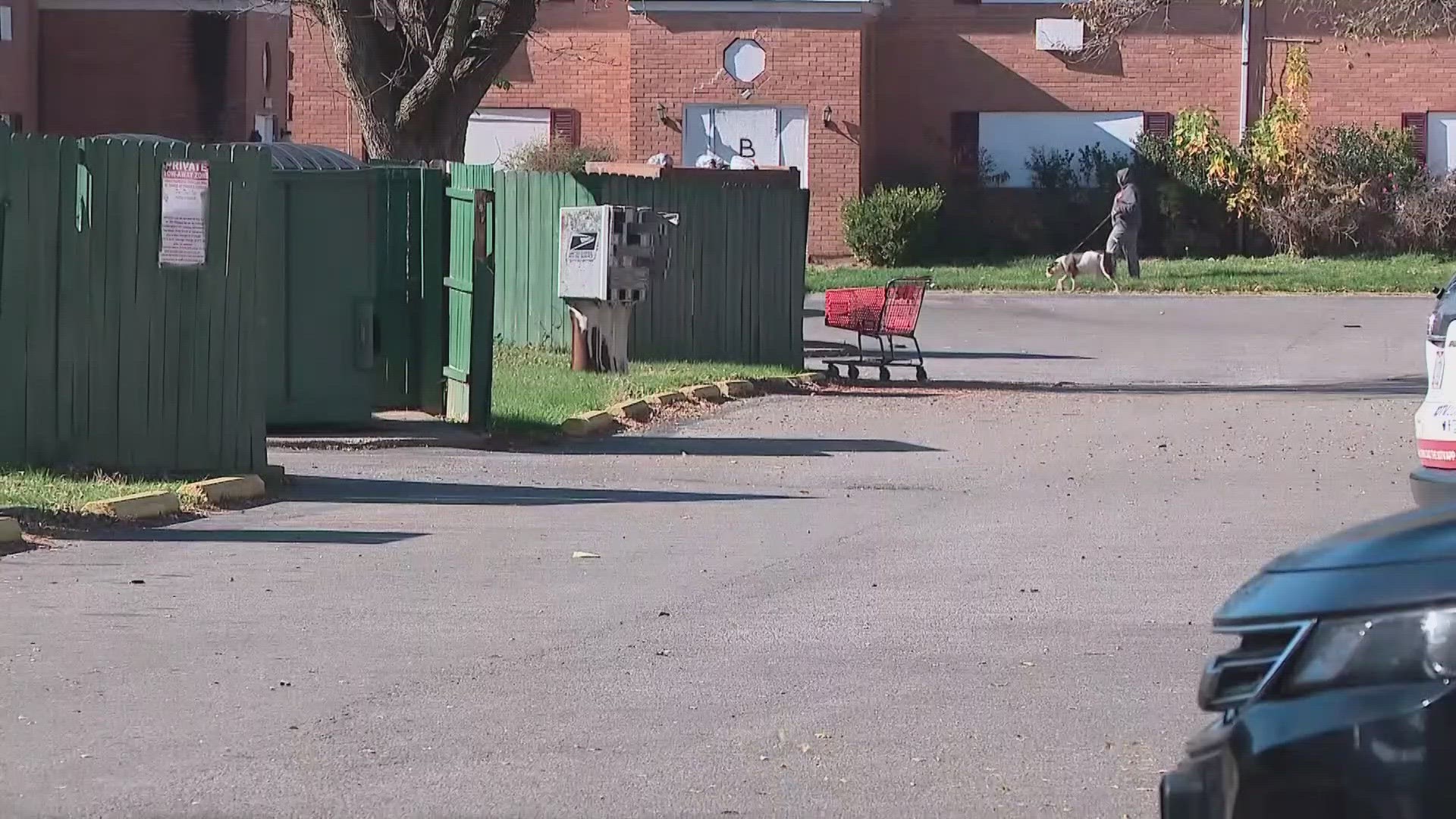COLUMBUS, Ohio — The Columbus City Council voted Monday to give the Community Shelter Board $3 million in grant money to help cover the costs from rehousing the 1,300 people found living at the Colonial Village Apartments.
The Community Shelter Board took on the Herculean effort of rehousing the people when city code enforcement found hundreds of people living in apartments that were supposed to be empty.
It was found many people, most of whom were Haitian immigrants, were living there on illegitimate leases. These fake leases were renting by the room, not the unit. That made getting an official count early on nearly impossible.
According to the Hannah Jones, deputy director of the Columbus Department of Development, some of the units housed several families at one time. Many of the units didn’t have electricity, heat or running water.
“For us it was very important that these households were given temporary housing in a safe location through the winter months to remove them from the property they were at, which was not safe, and to give them a stable space to start engaging with services to start obtaining housing and employment in Columbus,” said Jones.
Hundreds of former residents now live in several hotels around the city and that comes at a cost for the Community Shelter Board. The $3 million will help cover that cost through March.
“This is actually just the second half of the original commitment by the city. The city had always committed to provide approximately $4 million to fund the temporary housing option for these families from whenever we engaged. We started offering it at the end of November. We offered it through December and through the end of March,” said Jones.
The rehousing efforts haven’t been easy for the Community Shelter Board. They’ve been able to find permanent housing for a handful of residents and some have found solutions on their own, but many are still living in hotels and motels.
“The rest of the balance of this $3 million is to say 'gosh, now that we know everything, the entire universe and cohort of people displaces, where are the dollars needed,'" said Shannon Isom, President and CEO of the Community Shelter Board.
The increase in the number of people threw a bit of a wrench into their efforts as well.
“You can image it was just daunting, it is daunting along to think of 500 to 800 people who have immediate needs, but going upwards of 1,300 people, well over 300 children, people that weren’t necessarily on anyone’s radar,” said Isom.
The legal status of many of the people living in Colonial Village has also complicated matters for the Community Shelter Board.
“It’s tough. We’re talking about a population that comes from a myriad of backgrounds, whether they’re not from the U.S. and don’t have the paperwork to show it and have been human trafficked here and have moved through levels of disparities,” she said.
LaToya Bonner lived at Colonial Village for seven years. She was one of the people who held a valid lease at the time everyone was told to get out. She’s currently in a hotel on the north end of the city, miles away from Colonial Village. She said having to move out of her apartment has cost her more than her home.
“It’s a living hell,” said Bonner. “They moved me all the way out here in Mexico, so you know how I was telling you about my job? I don’t have that anymore.”
She said due to not having a car and the distance to the nearest bus station, she lost her job that was near Colonial Village due to not being able to get there.
She added that she has evictions on her name that she said shouldn’t be there and wants the city to help her get them removed so she can find a permanent place to stay.
“The legal aid people make like they want to help us, but everyone calling them, they can’t help all of us with evictions and all that,” she said.
Isom said they are working as quickly as possible to get everyone a permanent place as soon as they can. The deadline for the temporary assistance is the end of March.
“We know march is coming and that is a right now deadline and we know there are others that just aren’t going to meet the deadline,” Isom said. “What we’re bracing for is a majority might not meet that deadline. We have still some eminent needs that are on the horizon.”
The Community Shelter Board is also dealing with the increased cost of housing in Columbus. That, along with rehousing families from the Latitude 525 apartments and Galloway Village apartments, mean there are a lot of people looking for a place to go at the same time.

